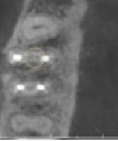Are you or is your child snoring or having airway issues? Everyone wants their children to grow up healthy and strong. However, sometimes there are hidden clues that signal something is wrong, but parents are unaware. For example, children should not display the following:
- Your child snoring loudly.
- Episodes of stopping breathing during sleep — which another person would report.
- Gasping for air during sleep.
- Awakening with a dry mouth.
- Morning headache.
- Difficulty staying asleep (insomnia)
- Excessive daytime sleepiness (hypersomnia)
- Difficulty paying attention while awake.
- They are wetting their bed consistently after they are three years old.
If you or your child is snoring or is experiencing any of the above symptoms, visit Dr. Craig S. Kohler’s office in Wilmette, IL, to get a CBCT scan. The CBCT is a low-dose 3-dimensional X-ray that screens for jaw joint problems, airway issues, deviated septum, tonsil, and adenoid enlargement. The CBCT x-ray is the complete dental development evaluation and is read by an oral radiologist.
CBCT vs. Panoramic
A cone-beam computed tomography scan can help obtain a better view of the entire mouth, jaw, nasal, and throat areas. A CBCT creates fantastic 3D images that show bone, airway, and soft tissue in these areas and any dental work done.
Panoramic radiographs are often less sharp images and provide less accurate information,
which can lead to overlooking dental needs or even health issues like:
Missing a canal when root canal treatment was done. CBCT image showing the missed canal
in the mandibular molar. If one of the canals is overlooked and not treated, an infection will
ultimately develop and potentially form a painful abscess.


How is a CBCT Scan different from a medical CT?
Cone Beam CT and dental CT are different types of x-rays to create 3D images of the mouth. The radiation exposure from CBCT is reduced dramatically compared to medical CT. In addition, these x-rays are superior to intraoral panoramic x-rays because they help dentists to determine the following:
- A dentist can provide accurate jaw measurements, including the shape and dimensions. The sizes are helpful for dental implant surgery and for measuring any oral appliances.
- CBCT scans help dentists to detect lesions indicating severe diseases.
- Diagnosing airway sleep disorders is another benefit of CBCT scans.
- Identifying precise locations of infections in your tooth is often challenging; however, CBCT scans have eased the procedure.
- CBCT scan dental can evaluate sinuses, nerve canal, and nasal cavity.
What Can Dental CBCT Scans Help to Diagnose?
As CBCT scans allow dentists an in-depth view of teeth, gums, jaw, nerves, and sinuses, it helps to detect and diagnose many other infections. The infections and complications that can be seen and interpreted by a CBCT scan include the following:
- Sleep-related disorders of the airway like sleep apnea.
- Temporomandibular joint disorders.
- Tooth root infections, root canals, and many other problems.
- Tumors, cysts, and bone cancer.
- Issues with the gums.
- Nasal anatomy, including the septum, sinuses, and turbinates.
- Smile Design, Full Mouth Reconstruction & Dental Facelift Planning
- Assess the functionality of existing teeth
- Diagnose and plan full-mouth rehabilitation cases
- Analyze and plan dental facelift procedures
- Develop a full facial preview of the smile design for patient approval.
Schedule your appointment with Dr. Kohler today! You can reach us at 847-251-9000 or e-mail kohlerdentistry@gmail.com. We are looking forward to meeting you.